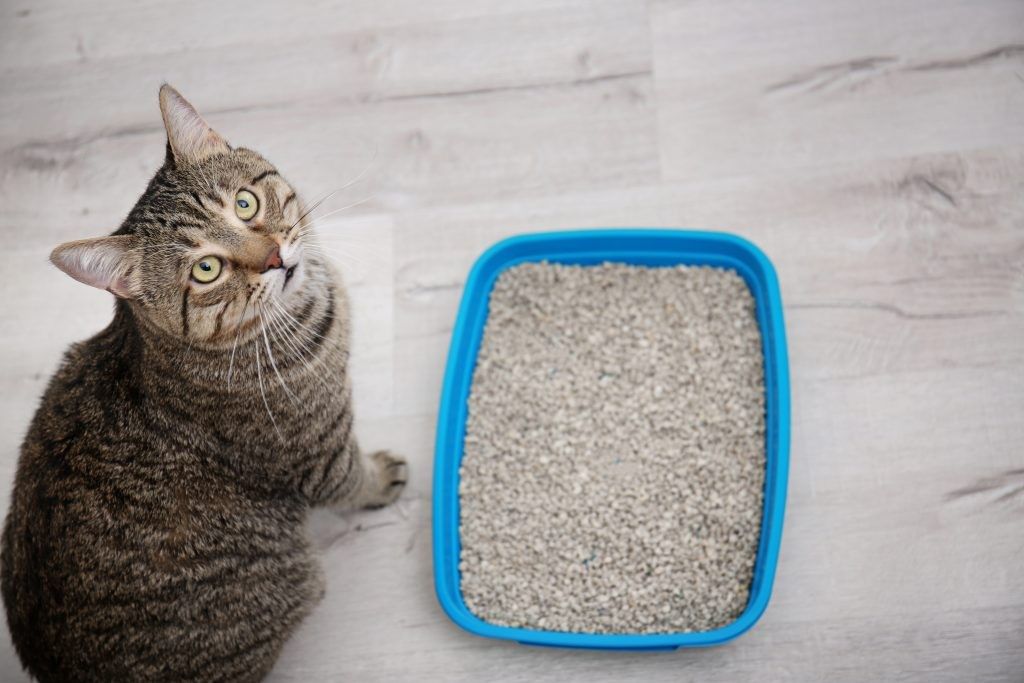If you’re a cat owner, you may have found yourself frustrated, asking, “Why is my cat peeing outside the litter box?” It’s a common problem, but it can be both confusing and upsetting. Your cat has a designated spot to go, so why is this happening? The truth is, there are many reasons a cat might avoid the litter box. Let’s dive into some possible causes and figure out how to fix this issue so both you and your furry friend can be happier.

Is There a Health Problem?
One of the first things to consider when your cat starts peeing outside the litter box is their health. If your cat is suddenly peeing outside the litter box, it might not be a behavioral issue. Instead, it could be a sign of a medical condition like a urinary tract infection (UTI), bladder stones, or kidney disease. These issues can cause pain or discomfort during urination, making your cat avoid the litter box.
If you notice any changes in your cat’s bathroom habits, like peeing just outside the litter box, it’s important to visit a veterinarian. Your vet will be able to do tests to see if there’s an underlying health problem causing this behavior. Treating a medical issue early can help prevent more serious health problems later on.
Stress and Anxiety: The Silent Causes
Cats are creatures of habit, and even small changes in their environment can cause stress or anxiety. If your cat is peeing next to the litter box, stress might be the culprit. Have you recently moved, introduced a new pet, or changed your home’s layout? These things might seem minor to you, but they can cause a lot of anxiety for your cat.
When stressed, cats might avoid the litter box or find other places to pee as a way of coping. If you’re asking, “Why does my cat keep peeing outside the litter box?” think about any recent changes in your household.
You can help your cat feel more secure by providing quiet spaces to relax, sticking to a routine, and avoiding too many changes at once. Sometimes using a calming spray or diffuser, designed specifically for cats, can reduce anxiety and encourage your cat to use the litter box again.
Territorial Behavior
Territorial marking is another reason your cat might not be using the litter box. Cats mark their territory by spraying or peeing in certain areas. If your cat is peeing next to the litter box or elsewhere in the house, they might be marking their territory. This is especially common in homes with multiple cats or if a new pet has been introduced. Even indoor cats can feel the need to mark territory, especially if they see other animals outside through windows.
If you’re wondering, “Why is my cat suddenly peeing outside the litter box?” it could be related to territorial marking. One solution is to ensure your cat feels secure in their space.
Litter Box Problems
The litter box itself could be the problem. Cats can be picky about their litter boxes, and if something is off, they might choose to pee elsewhere.
Here are some common litter box issues:
Cleanliness: Cats are very clean animals, and they won’t use a dirty litter box. If you’re not scooping the litter daily, your cat might decide to go elsewhere. Make sure to clean the box often to keep it fresh.
Litter Type: Cats can be particular about the type of litter they like. If you’ve recently changed the brand or type of litter, your cat might not like the new smell or texture. Try switching back or testing different litters to see which one your cat prefers.
Size and Style: The size and shape of the litter box matter, too. If the sides are too high or the box is too small, your cat might find it uncomfortable. Make sure the box is easy for your cat to get in and out of.
If you’re asking, “Why is my cat not peeing in the litter box?” these factors could provide some insight.
Age-Related Concerns
As cats get older, their bodies change. Older cats can develop joint problems like arthritis, which can make it harder for them to use the litter box. If your cat has difficulty climbing into the box due to high sides, they might start peeing outside of it.
Switching to a low-sided litter box can help senior cats. It’s also important to make sure the litter box is in a place that’s easy for your cat to access. If they have to go up or down stairs to reach it, this could cause them to avoid it.
Cleaning Up Accidents
Once your cat has peed outside the litter box, it’s important to clean the area thoroughly. Cats have a strong sense of smell, and if they can still smell their urine in a spot, they’re likely to go there again. Use an enzymatic cleaner to remove the scent completely. Regular cleaners may not get rid of all the odor, and your cat could return to the same spot.
Helping Your Cat Use the Litter Box Again
After figuring out the cause of the problem, you can take steps to encourage your cat to use the litter box again:
Rule Out Medical Issues: If your cat’s behavior has changed suddenly, visit the vet to ensure there’s no health issue.
Reduce Stress: Create a calm and predictable environment for your cat. If something has changed in your home, try to make it less stressful for your cat.
Make the Litter Box Appealing: Keep the box clean, place it in a quiet location, and use a litter your cat likes.
Clean Accident Spots: Use an enzymatic cleaner to remove urine odor and prevent your cat from returning to the same spot.
Frequently Asked Questions (FAQs)
1. Why is my cat peeing outside the litter box suddenly?
Sudden changes in behavior, such as peeing outside the litter box, may indicate a medical issue or stress. It’s important to consult a vet to rule out health problems.
2. How can I reduce my cat’s stress?
Create a calm environment by maintaining routines, providing safe spaces, and minimizing changes in the home. Using calming products, like pheromone diffusers, can also help.
3. What type of litter should I use for my cat?
Cats can be picky about litter. Experiment with various types, such as clumping, non-clumping, or natural options, to find one that your cat prefers.
4. How often should I clean the litter box?
Scoop the litter box daily and completely change the litter every 1-2 weeks. Keeping the box clean encourages your cat to use it consistently.
5. Is it normal for cats to pee outside the litter box when they are older?
Older cats may develop health issues or mobility problems that can affect their litter box habits. Providing a low-sided litter box can help accommodate their needs.
6. Can multiple cats share a litter box?
While it’s possible, it’s not ideal. Cats prefer having their own space. The general rule is to have one litter box per cat, plus one extra.
7. What should I do if my cat keeps returning to the same spot to pee?
Thoroughly clean the area with an enzymatic cleaner to remove the odor. If the scent lingers, your cat may continue to return to that spot.
Final Thoughts
While it can be frustrating when your cat pees outside the litter box, understanding the reasons behind this behavior is key to solving the problem. Whether it’s a medical issue, stress, or something about the litter box itself, figuring out what’s causing the behavior will help you address it.
By making a few changes and paying attention to your cat’s needs, you can help your cat feel comfortable using the litter box again. Remember, cats are sensitive animals, and with some patience, you can get things back to normal.
For more helpful tips on cat care, visit CatTopTips for expert advice and guidance on keeping your feline friend healthy and happy.


